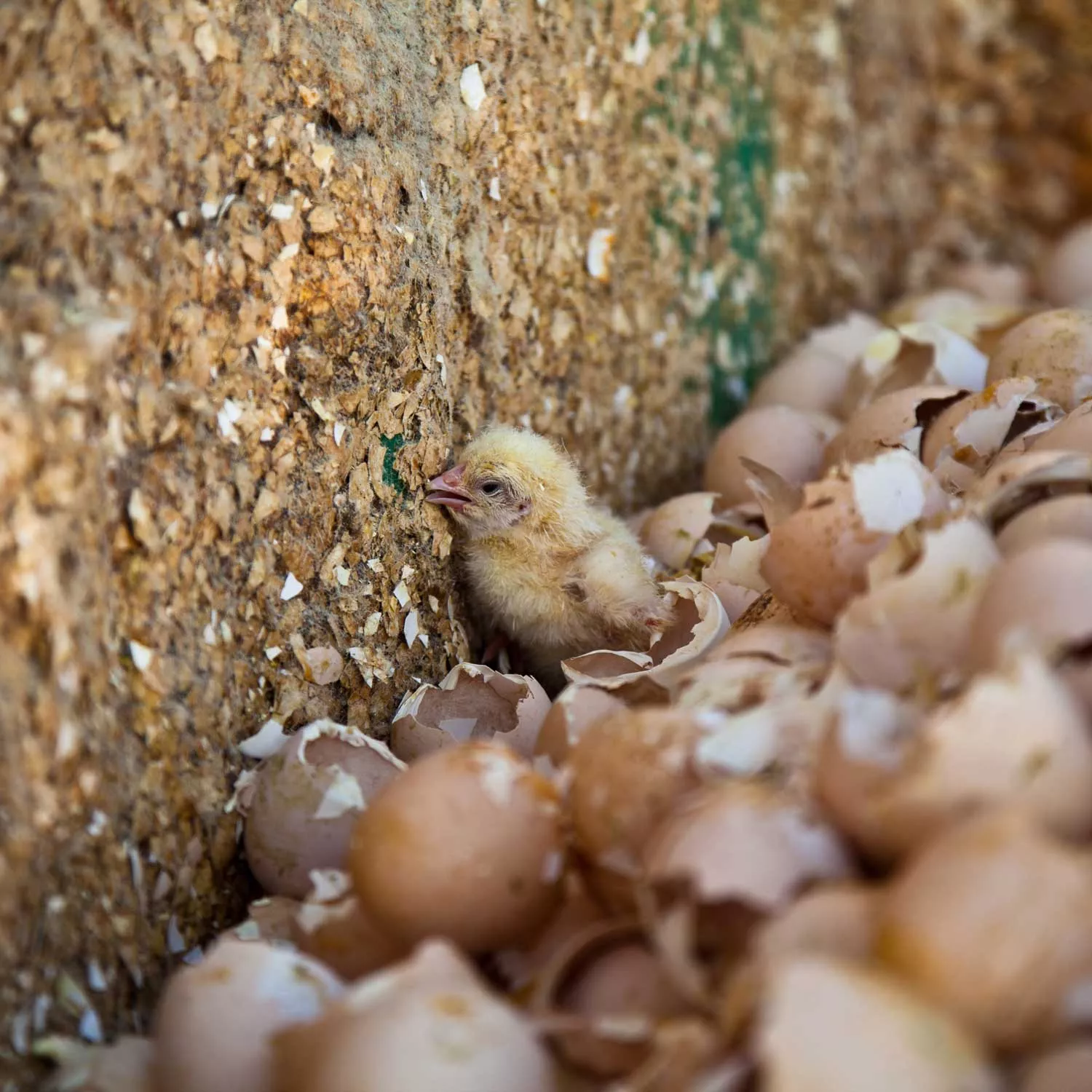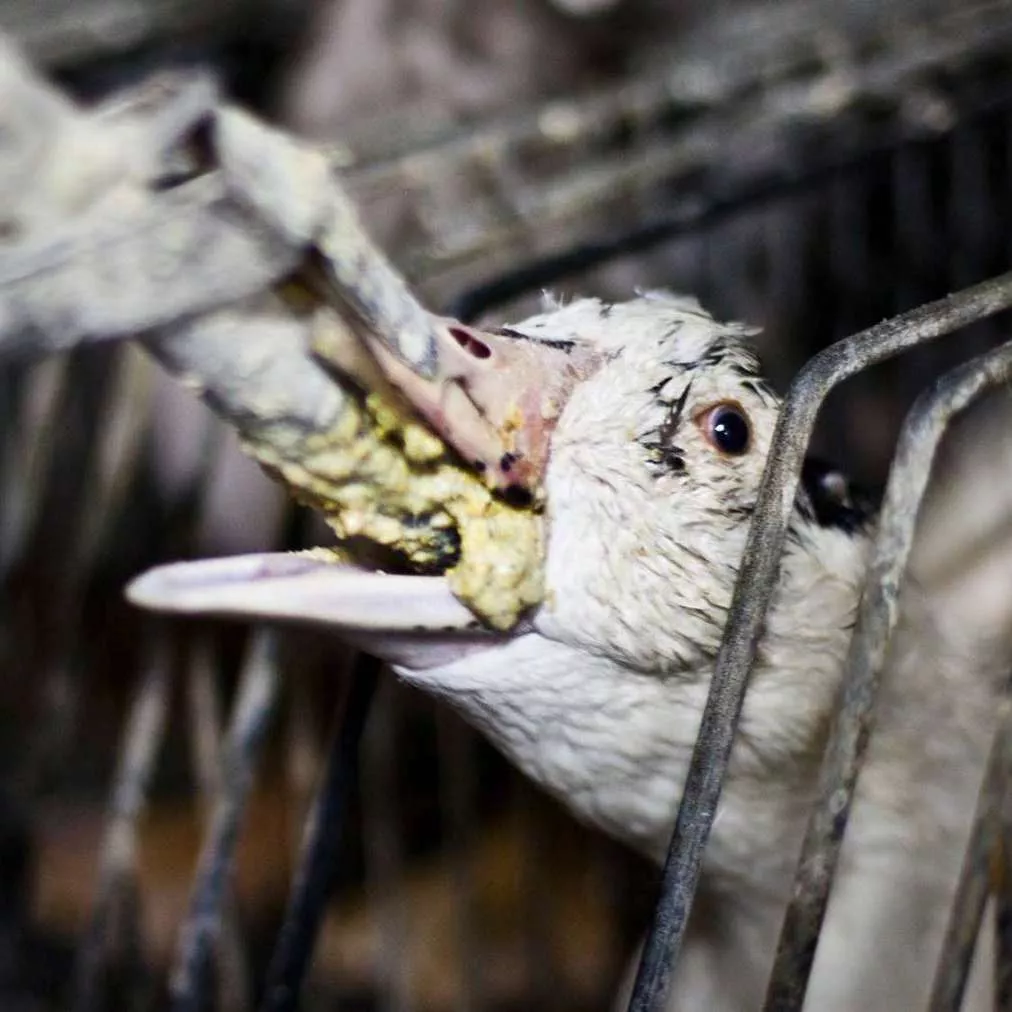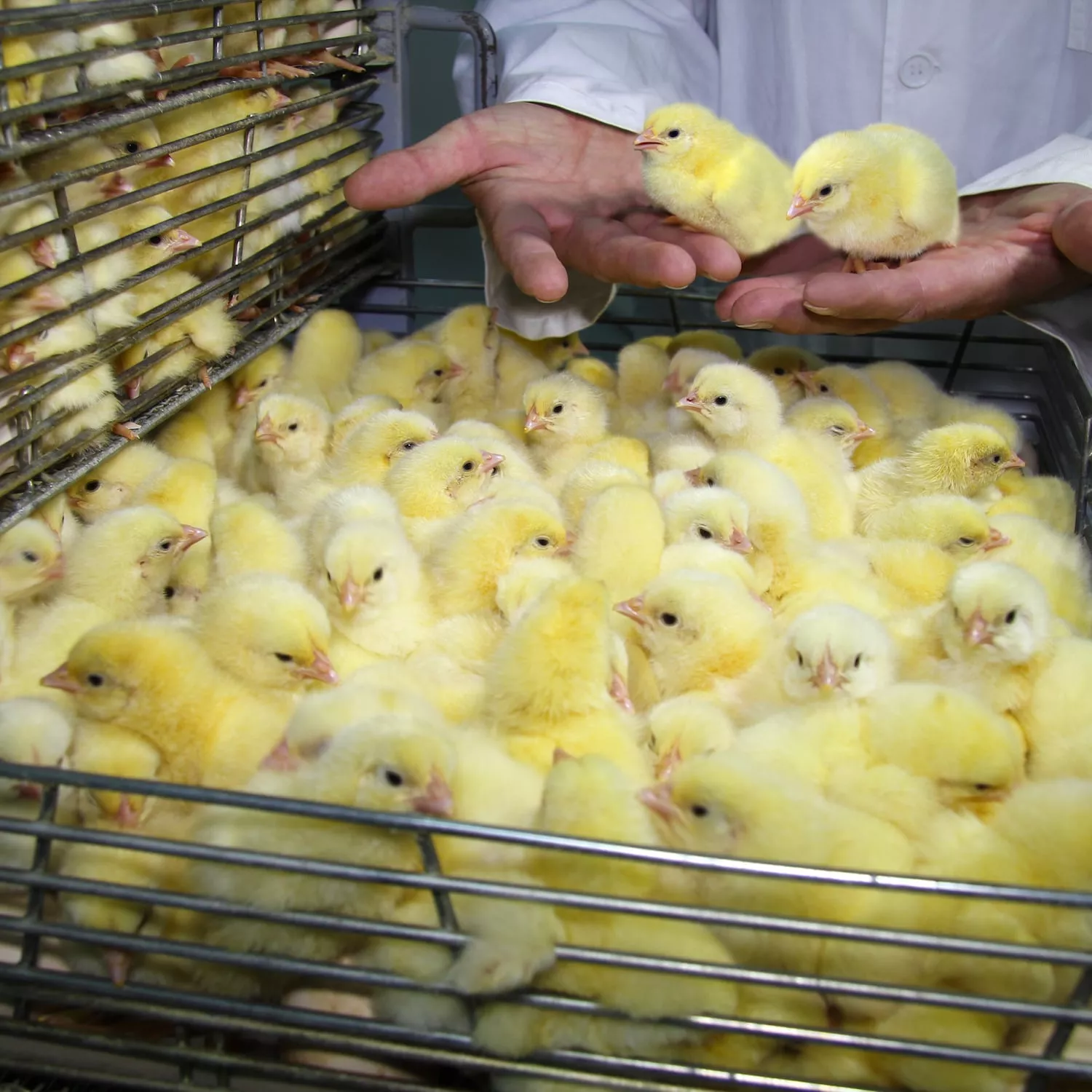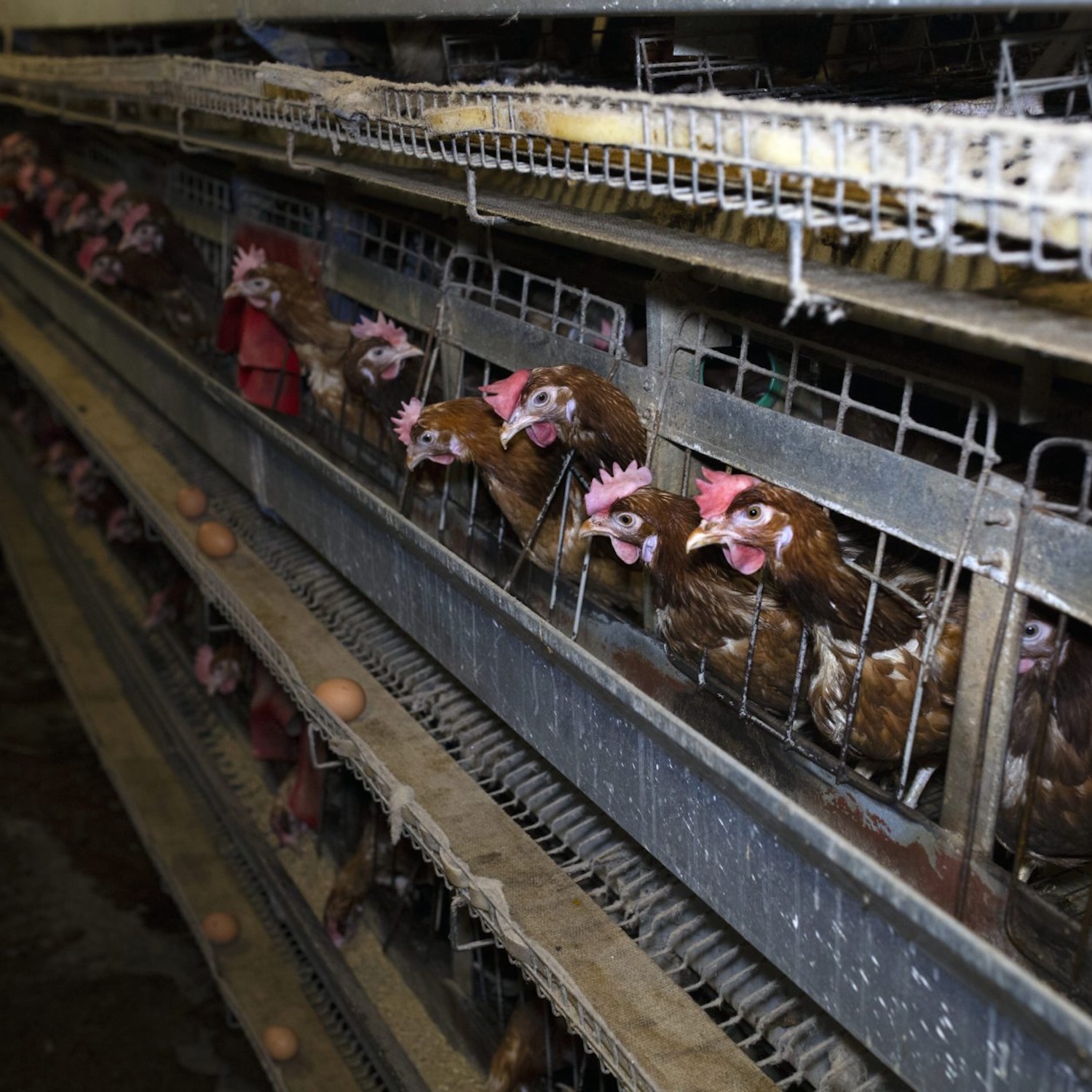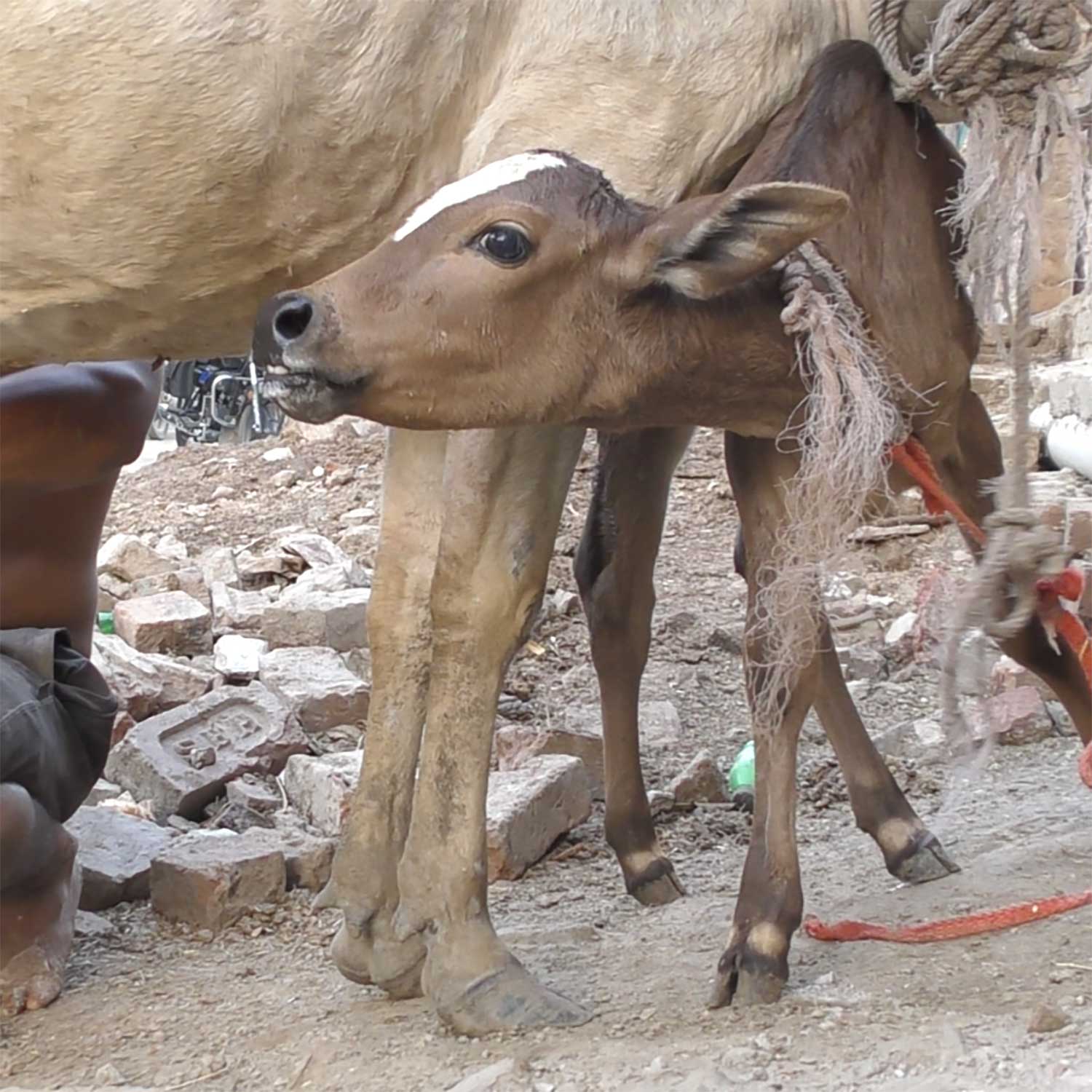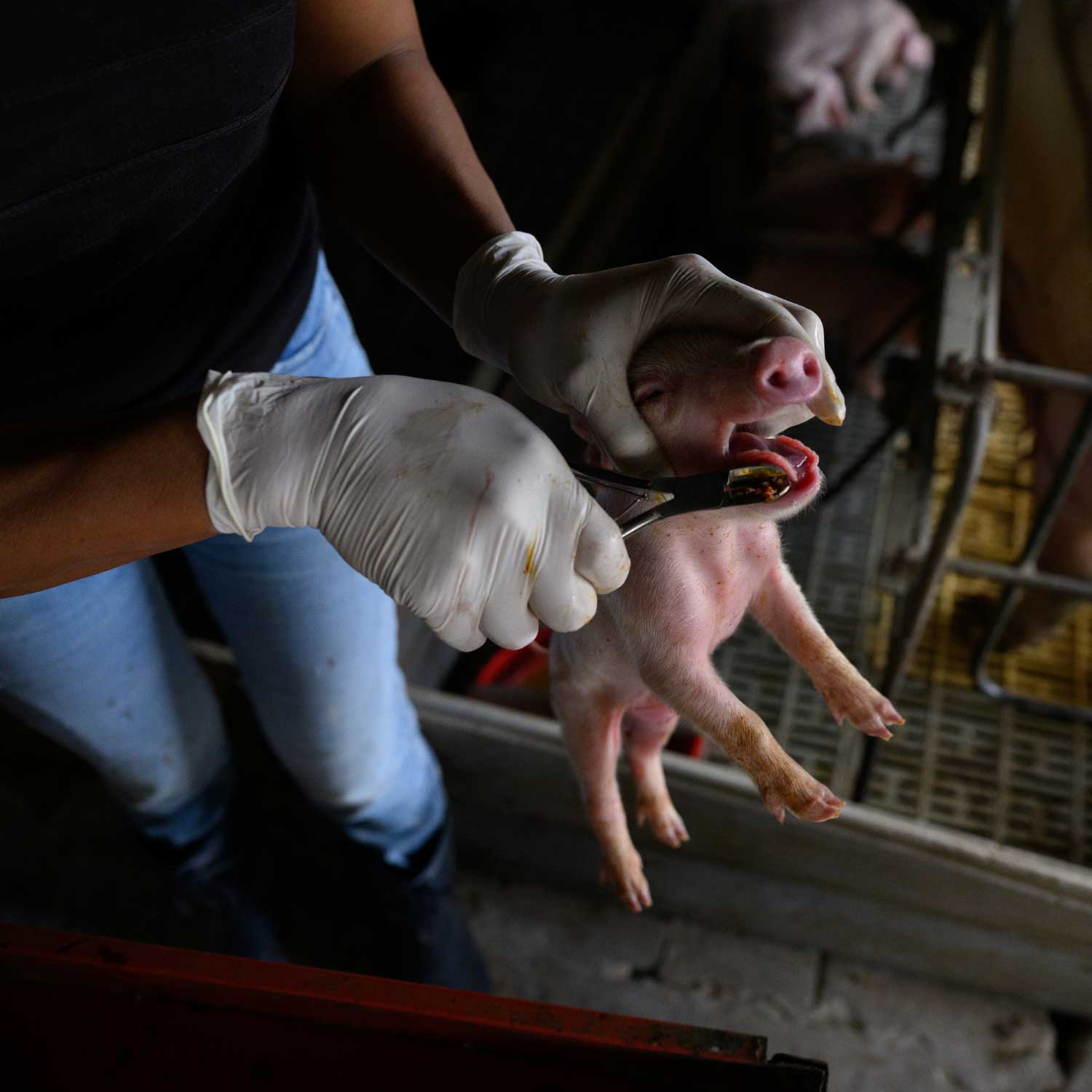Italy’s long-awaited action on chick killing in the egg industry


- Italy banned male chick killing in 2022, but enforcement was delayed for years by government inaction and loopholes.
- Male chicks are killed in the egg industry because they cannot lay eggs or grow quickly enough for meat.
- Millions are ground up alive or suffocated each year.
- Animal Equality has long pushed for in-ovo sexing. This technology finds a chick’s sex before they hatch to stop males from being born.
- Following public pressure, the government released rules in October 2025 to enforce the ban.
Update October 2025 – After years of delay, the Italian government released guidelines to enforce its chick killing ban by December 31st, 2026. But male chicks born by mistake can still be killed, a loophole advocates say must be closed.

Update February 2025 – Animal Equality projected a message onto the Colosseum, calling for enforcement of Italy’s male chick-killing ban. The display showed footage from hatcheries alongside the faces of the three Italian ministers responsible for implementing the ban. These were accompanied by the words: “Act now, stop the slaughter of male chicks!”

Advocates also launched a manifesto against chick killing, backed by journalist Giulia Innocenzi and singer-songwriter Giorgia.
Update December 2024 – Animal Equality’s Vice President for Europe spoke about male chick killing on TV program Mi Manda Rai Tre.
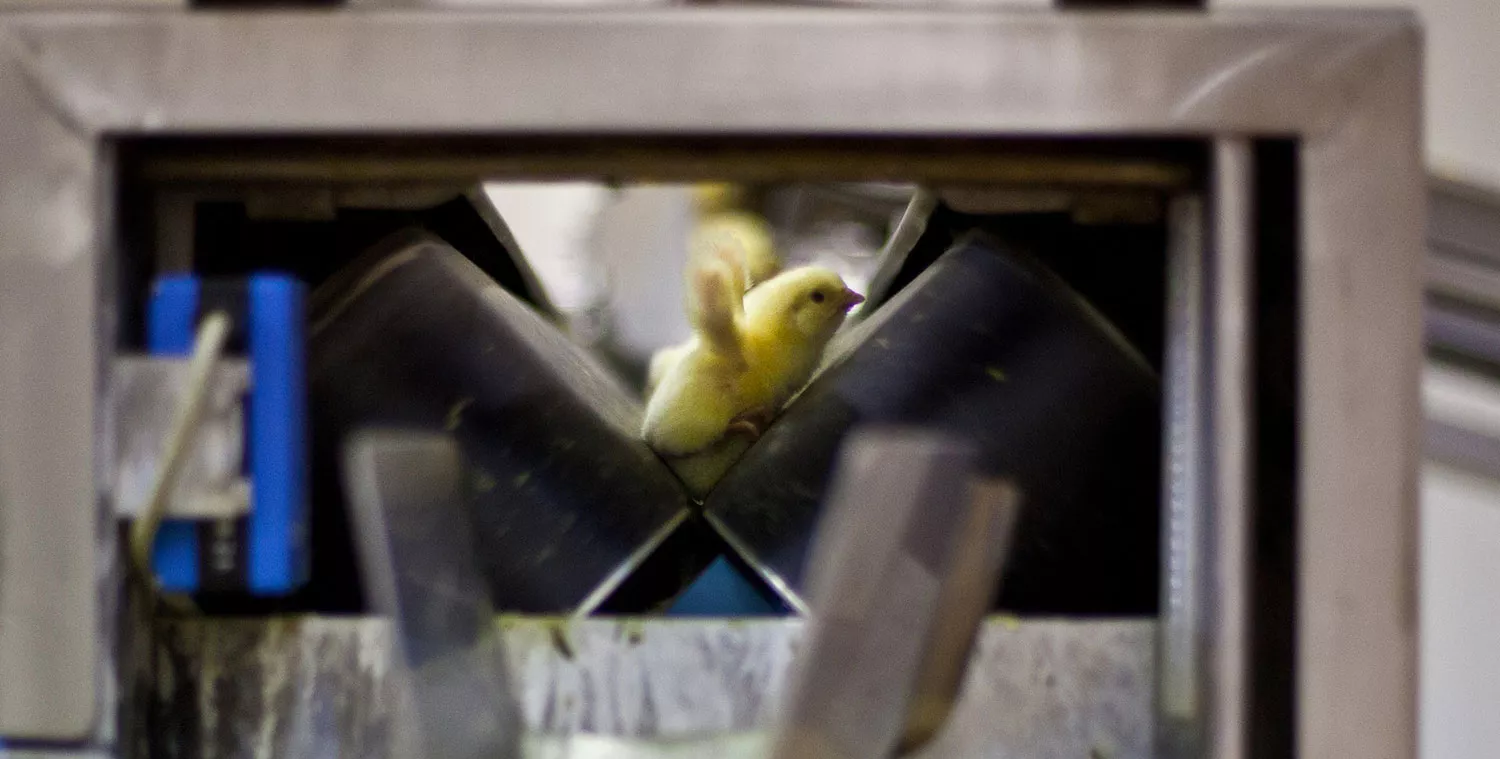
Update November 2024 – Protesters gathered outside the Agriculture and Health Ministries, condemning delays in the ban’s enforcement.
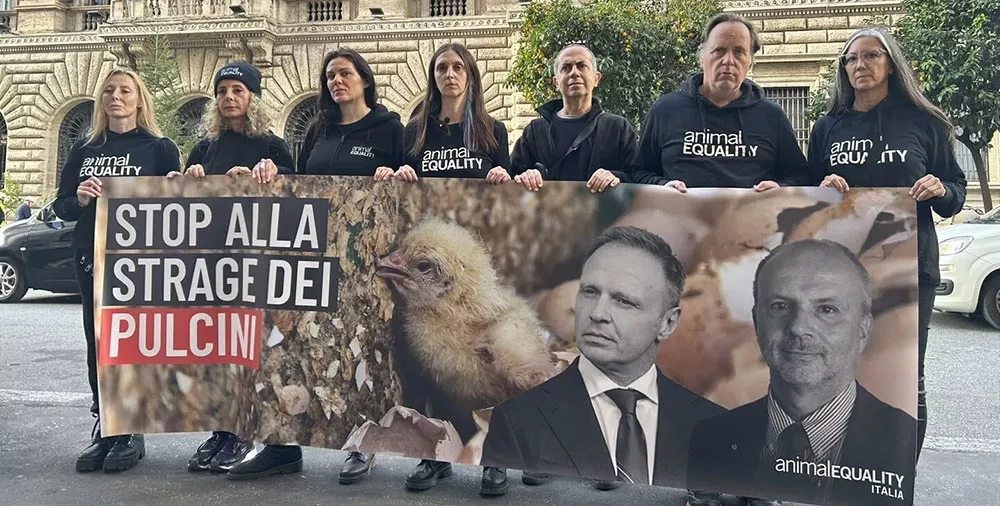
Update September 2023 – The Italian government outlined enforcement for the male chick killing ban. However, loopholes remain, allowing exceptions for sexing errors, machine failures, and more. A letter signed by Animal Equality and other groups urged the government to close these gaps.
Update August 2023 – Some members of Italy’s Chamber of Deputies–similar to the U.S. House of Representatives–asked to clarify enforcement of the 2022 male chick-killing ban. Officials formally requested answers from the Ministers of Agriculture and Health.
Update August 2022 – Italy’s Chamber of Deputies gave final approval for a ban on male chick killing. The law passed by a wide margin and is slated to take effect by 2026. Animal Equality’s Director for Italy spoke at a press conference to mark the occasion in the Parliament’s press room.
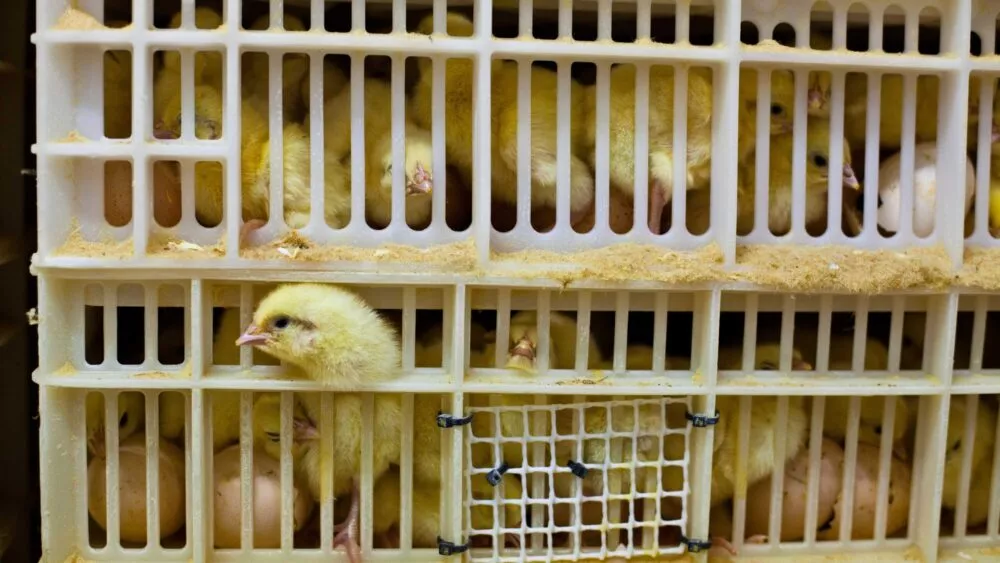
Animal Equality has launched a campaign urging Italy’s government to end the killing of male chicks in the egg industry.
The petition–directed at the Ministries of Agriculture and Health–calls for officials to promote in-ovo sexing technology and support companies that adopt it.
Italy’s largest supermarket chain–Coop–voiced its support just hours after Animal Equality’s campaign launch. The company announced online and in the media that it will adopt in-ovo sexing technology as soon as possible.
Why are male chicks killed in the egg industry?
Around the world, millions of male chicks are killed every year because they can’t lay eggs or grow fast enough for meat. Within hours of hatching, they are typically ground up alive in industrial macerators, gassed, or in some cases, electrocuted.*
*While electrocution is allowed in the U.S., it is not allowed in Europe.
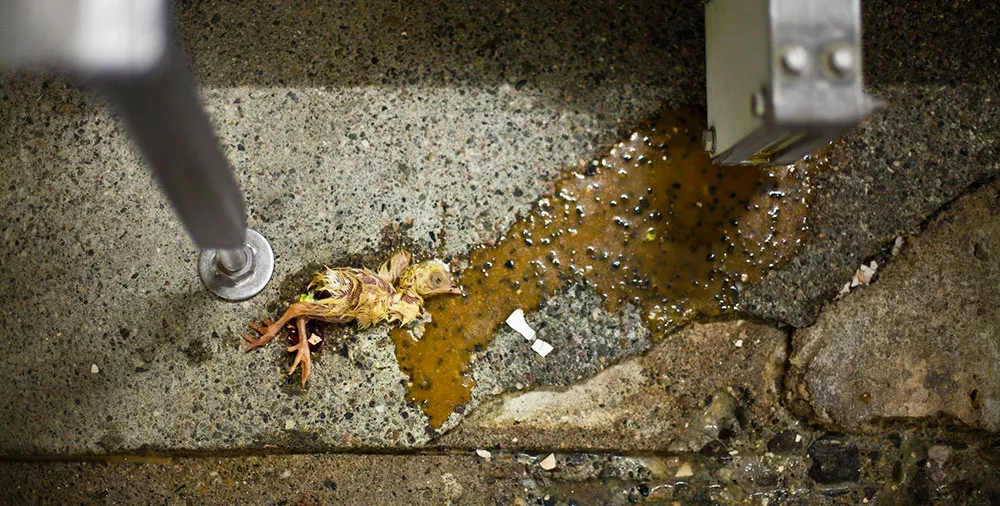
In Italy, tens of millions are discarded as waste each year. The practice is just as widespread in the U.S., where hundreds of millions are killed annually.
Billions of baby birds face death on the day they are born simply because their lives are not profitable. Please sign the petition to end this massacre.
A proven solution: In-ovo sexing
In-ovo sexing technology identifies a chick’s sex before it hatches, preventing millions of male chicks from being born into the egg industry. Several countries have already adopted this method.
The process works by detecting the embryo’s sex within the first days of fertilization. This is done through a minimally invasive or non-invasive test.
Various in-ovo sexing technologies are available, though some are still in development.
Egg-free: The best way to protect chicks
While in-ovo sexing prevents male chicks from being killed, millions of hens still suffer in the egg industry. They endure short, stressful lives, only to be slaughtered when their production slows.
The simplest, most effective way to protect them is to choose plant-based alternatives. Check out delicious, compassionate, egg-free recipes on Love Veg.
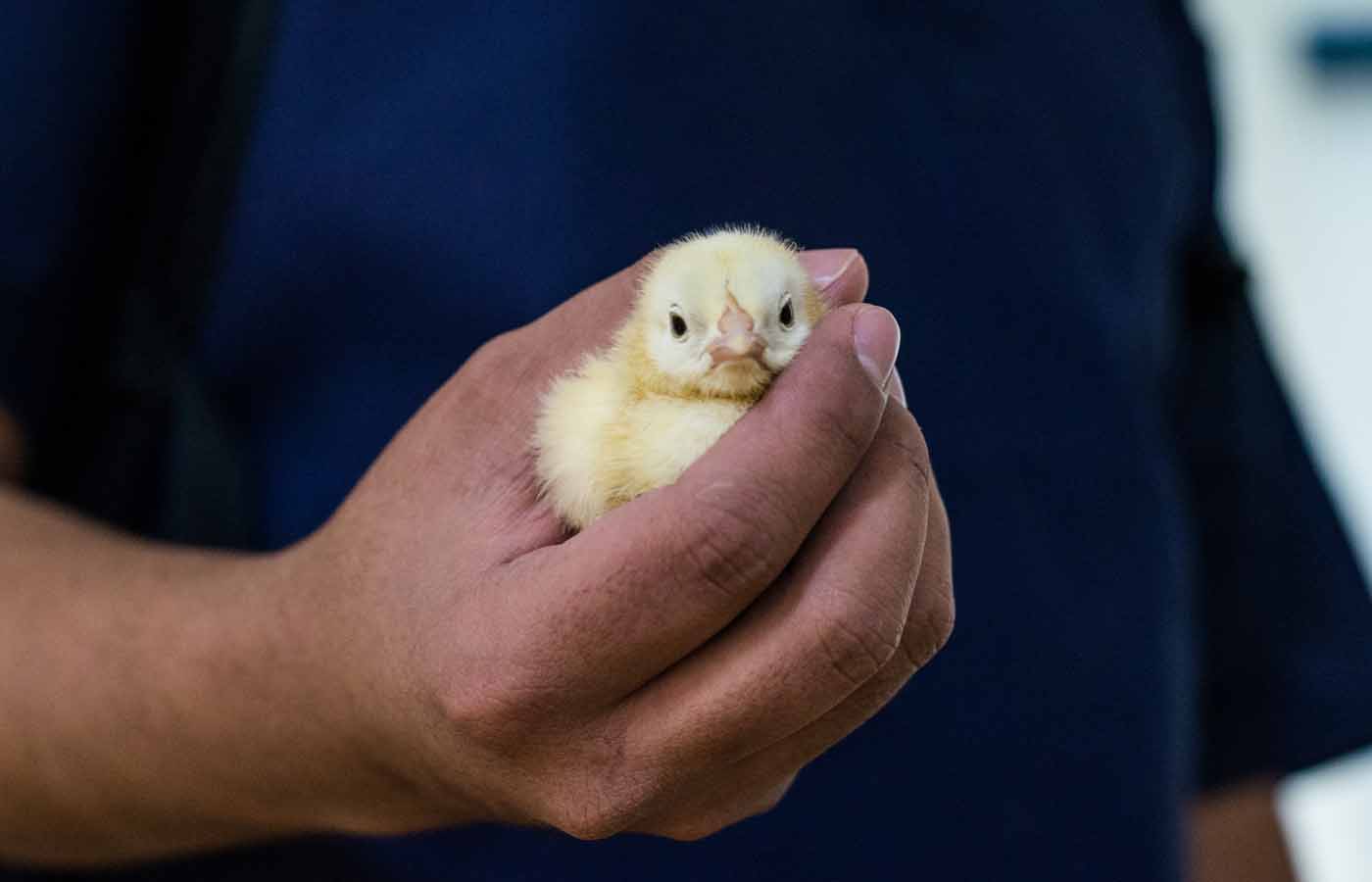
PROTECT THE MOST VULNERABLE
A curious chick recognizes his mother’s voice and imprints on her immediately after hatching.
You can defend these family bonds by choosing plant‑based alternatives to eggs.

